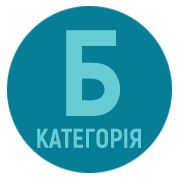THE LANGUAGE SITUATION DURING THE RUSSIAN-UKRAINIAN WAR
DOI:
https://doi.org/10.32782/2307-1222.2024-57-3Keywords:
survey, communicative preference, Ukrainian language, national language, state languageAbstract
This research presents and analyses the results of a small survey conducted by the author on social media and channels in the spring of 2023 to identify the peculiarities of the language situation in Ukraine after the full-scale invasion of the Russian occupiers. The motivation for the survey was the fact that during the year of full-scale war, the majority of Ukrainians, including Russian speakers, began to deliberately refuse to use the Russian language in all spheres of life, both in oral and written communication, in professional and everyday situations. This research aimed to confirm or refute the assumption that the attitude of Ukrainians (not only citizens of Ukraine) towards the state language and its perception as a national language has changed. The main research method used in this research was a survey conducted on the Google platform the link to which was distributed on Facebook, Instagram, and messengers to reach a wide audience of respondents. The questionnaire contained 12 questions, including 11 multiple-choice questions and 1 open-ended question. The analysis of the results shows significant changes in the attitude of Ukrainians towards the state language and its perception as a national language. While in earlier surveys (2017), the Ukrainian language was determined to have either equal or even less communicative power than Russian, the results of the 2023 survey revealed that the Ukrainian language has greater communicative power not only in professional communication but also in everyday communication, including regardless of the region of the country. Despite the duration of Russia's military aggression, which began openly in 2014, the attitude of Ukrainians toward the Ukrainian language began to change dramatically in 2022, with the beginning of the full-scale invasion of Ukraine. According to the results of the study, the most striking differences compared to the 2017 survey were found in the use of Ukrainian not only as the state language in professional and official communication but also as a means of communication in everyday situations, which indicates an awareness of the role of Ukrainian as a national language and as a means of distancing oneself from Russian invaders.
References
Базів Л. Інтерв’ю з Тарасом Кремінем, уповноваженим із захисту державної мови. Укрінформ. 21.02.2023. URL: https://www.ukrinform.ua/rubric-society/3673008-taras-kremin-upovnovazenij-iz-zahistu-derzavnoi-movi.html
Масенко Л. Мовна ситуація України. Незалежний культурологічний часопис «Ї». 2004. № 35. URL: https://www.ji.lviv.ua/n35texts/masenko-mov_syt.htm
Масенко Л. Мовна ситуація України з погляду соціолінгвістів. Диво. Мовознавство. 2020. № 10. С. 24–26.
Мовна ситуація в Україні: між конфліктом і консенсусом. Київ : ІПіЕНД імені І.Ф. Кураса НАН України, 2008. 398 с.










